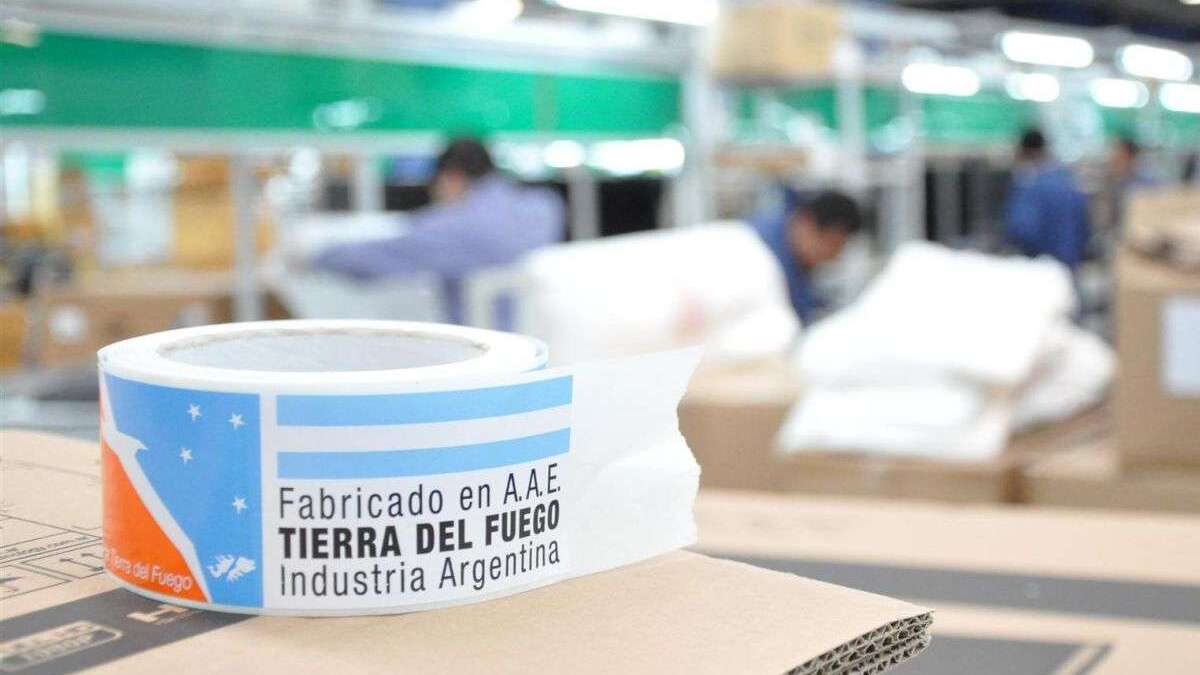Strong impact from tariff cuts: concern in Tierra del Fuego over the future of its industrial regime


The national government 's decision to move forward with the elimination of tariffs on cell phone imports has raised alarm bells in Tierra del Fuego . Although the measure has not yet been officially published in the Official Gazette, it has already generated strong opposition among business leaders, officials, and legislators in the province, who are warning of the consequences for the continued existence of the industrial promotion regime in place for more than five decades.
Governor Gustavo Melella was one of the first to express his opposition. Through his social media accounts, he warned that this is "a very hard blow" to local industry and linked the decision to pressure from the International Monetary Fund: "Field industry is jobs, it is sovereignty, and it represents a technological development that doesn't exist anywhere else in the country," he stated.
The government's response was swift. Presidential spokesman Manuel Adorni challenged the provincial leader and stated that "Kirchnerism's privileges are running out, and that's why they're nervous." In his message, he emphasized: "Gentlemen, freedom is advancing."
Dear Governor: We understand perfectly. Kirchnerism's privileges are running out, and that's why they're nervous. There's nothing to fear. Gentlemen, freedom is advancing.
The measure also raised concerns among opposition leaders. Peronist Senator Cristina López stated that the end of the tariffs "will cause unemployment, disinvestment, and a devastating social impact" in the country's southernmost province. The Association of Argentine Electronic Terminal Factories (Afarte) warned that the tariff reduction creates an uncertain scenario and that market performance will have to be assessed in the coming months.
Dante Sica , former Minister of Production and current director of Abeceb, opined that with zero tariffs, "the convenience of manufacturing in Tierra del Fuego becomes practically zero." According to his analysis, many companies could migrate production to other provinces or opt to import directly. "We will see a reconfiguration of the current system," he anticipated.
Although some firms are still analyzing the specific impact of the measure, others involved in imports welcomed the change. Ariel Elizalde of Positivo Argentina said it will allow "access to more competitive prices aligned with the international market." Other brands, however, remain cautious. "We are reading the fine print. If it's convenient to continue in Tierra del Fuego, we will," they assured Infobae.
Beyond the impact on businesses, the new scheme also has fiscal implications. According to a report by the think tank Fundar, the industrial promotion regime represents a cost to the State of USD 1.07 billion annually, equivalent to 0.22% of GDP. Of this amount, USD 630 million corresponds to VAT benefits, and another USD 436 million to preferential tariff treatment.
Economist Juan Carlos Hallak , one of the report's authors, explained on social media that while competition with imported products could reduce local production, it would also increase VAT revenue. He also ruled out a terminal crisis for the regime: "Cellphone assembly employs around 10,000 people, and it's not even obvious that production will be reduced that much."
Cell phone production was already declining. In 2024, 5.5 million units were manufactured, a figure lower than the previous year. In the first quarter of 2025, just over 1.4 million phones were assembled. Added to this is the problem of smuggling: one in three cell phones sold in the country was imported illegally, according to industry estimates.
In this context, the Tierra del Fuego industry faces double pressure. On the one hand, the tariff reduction will reduce protection against imported products. On the other, the drop in internal taxes—which also affects cell phones assembled in the country—could cushion some of the impact. However, both the private sector and the provincial government agree that competitiveness will be affected.
At Afarte, they insisted they will continue working to maintain activity and that the key will be coordination with all stakeholders in the chain, including workers, suppliers, and the retail sector. "The reduction in internal taxes is positive, but the tariff cut forces us to rethink the entire equation," they explained.
No one in the companies has yet confirmed whether the price will be immediately passed on. Some brands could get ahead of the curve with discounted prices, but others prefer to wait. For now, calculator in hand, everyone is analyzing the effects of a measure that could mark a turning point in the history of Tierra del Fuego's industrial regime.
elintransigente




